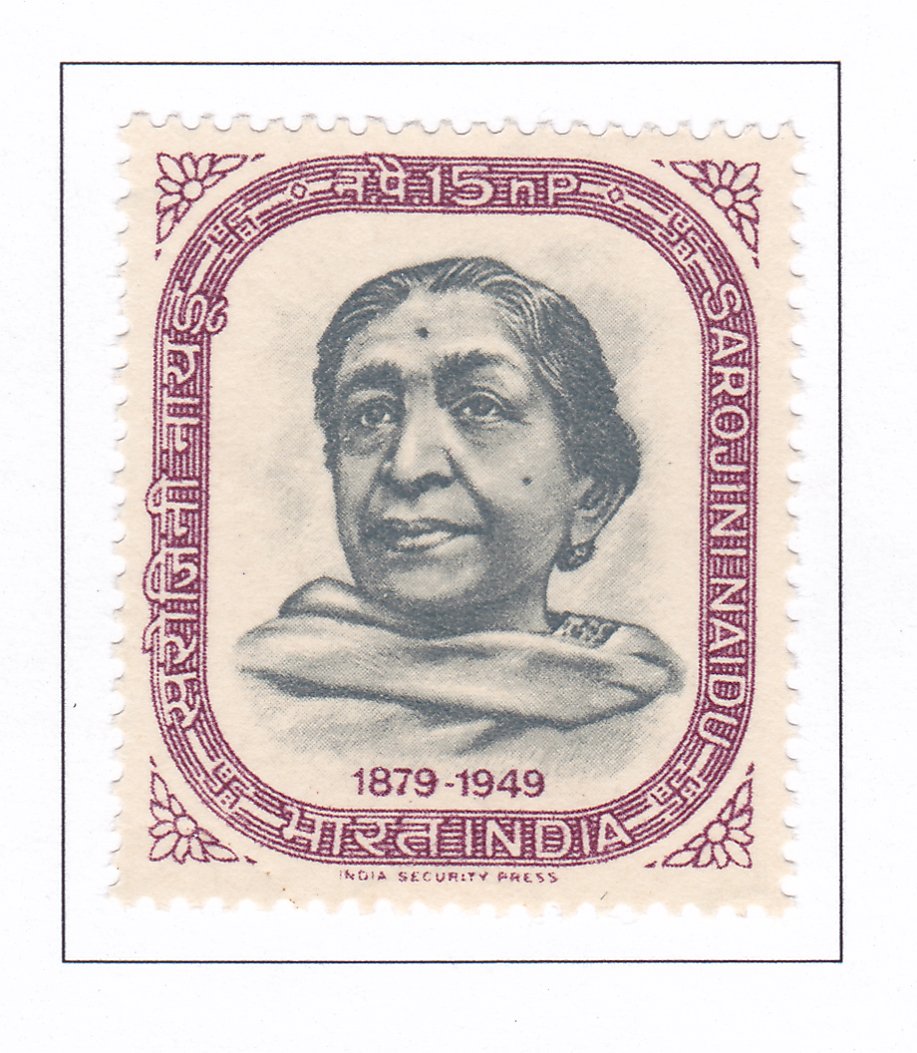Sarojini Naidu 1879-1949

Technical Data
| Stamp Set | Birth Centenary |
|---|---|
| Date of Issue | February 13, 1964 |
| Denomination | 15 nP |
| Quantity | 2,500,000 |
| Perforation | comb 14 |
| Printer | Security Printing Press, Nashik |
| Watermark | Asokan Capital Multiple [Up] |
| Colors | Grey green | Purple |
| Catalog Codes |
Michel IN 370 Stamp Number IN 385 Yvert et Tellier IN 171 Stanley Gibbons IN 484 |
| Themes | Anniversaries and Jubilees | Authors | Famous people | Literary People (Poets and Writers) | Literature |
Sarojini Naidu, affectionately known as the Nightingale of India, was born on February 13, 1879, into a scholarly and illustrious family in Brahmanagram, East Bengal. Her upbringing was steeped in a rich cultural and intellectual environment, with influences from her father’s love for truth and her mother’s passion for poetry.
Despite receiving formal education and excelling academically, Sarojini’s true education came from the nurturing environment of her home. She displayed extraordinary talent from a young age, composing her first verses and demonstrating a keen intellect and insatiable thirst for knowledge.
Her journey to England for higher studies was interrupted by health issues, leading to her return to Hyderabad in 1898. There, she married Dr. M. Govindarajulu Naidu, with whom she shared a blissful and harmonious union.
Sarojini Naidu’s literary prowess blossomed during her stay in England, where she gained recognition from eminent literary figures like Edmund Gosse and Arthur Symons. Her poetry, characterized by its oriental imagery and melodic quality, earned her the title of the Nightingale of India.
Despite her literary success, Sarojini Naidu was drawn to the political arena, becoming deeply involved in India’s struggle for freedom. She joined the Indian National Congress and rose to prominence as a passionate advocate for the country’s independence.
Her association with Mahatma Gandhi was profound, and she played a significant role in various movements, including the Dandi March and the Satyagraha raid on the Dharasana Salt Pans. Her courage and dedication to the cause of freedom inspired many, earning her the admiration of leaders and common people alike.
Sarojini Naidu’s presidency of the Indian National Congress in 1925 was a testament to her leadership and eloquence. She represented India on international platforms, dispelling misconceptions and advocating for her country’s interests.
After India gained independence in 1947, Sarojini Naidu served as the Governor of Uttar Pradesh, leaving a lasting legacy of service and dedication to her nation. Her untimely demise in 1949 marked the end of an era, leaving behind a void that few could fill.
In honor of her eighty-fifth birthday, the Posts and Telegraphs Department issued a special commemorative stamp, paying tribute to Sarojini Naidu’s indelible contributions to India’s freedom struggle and her enduring legacy of peace, freedom, and justice.
